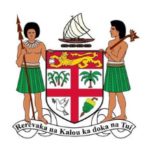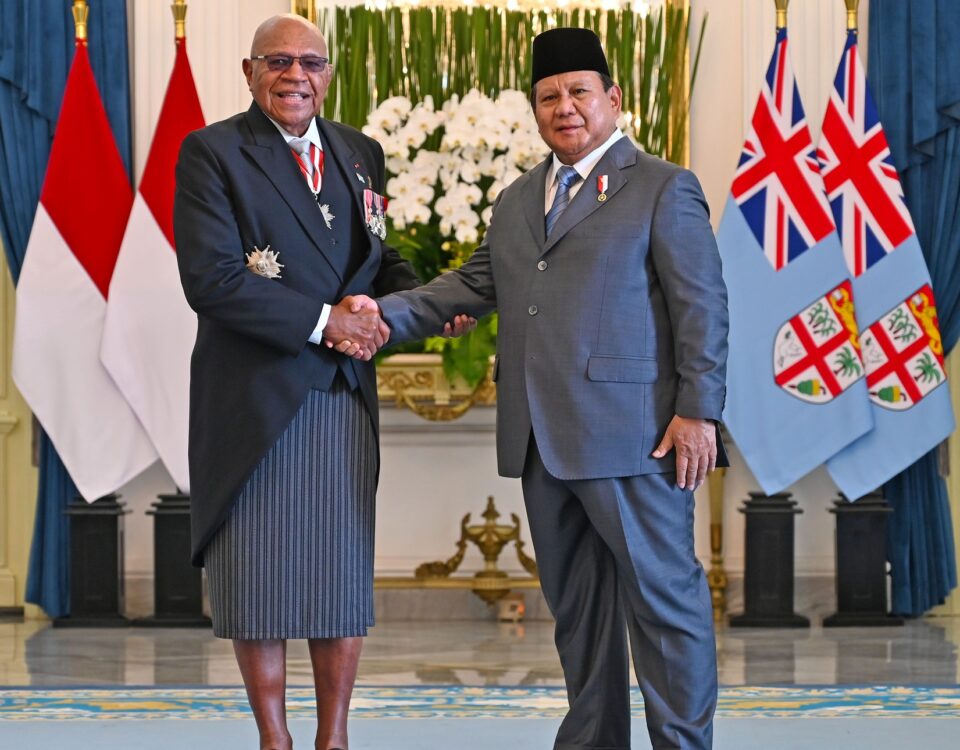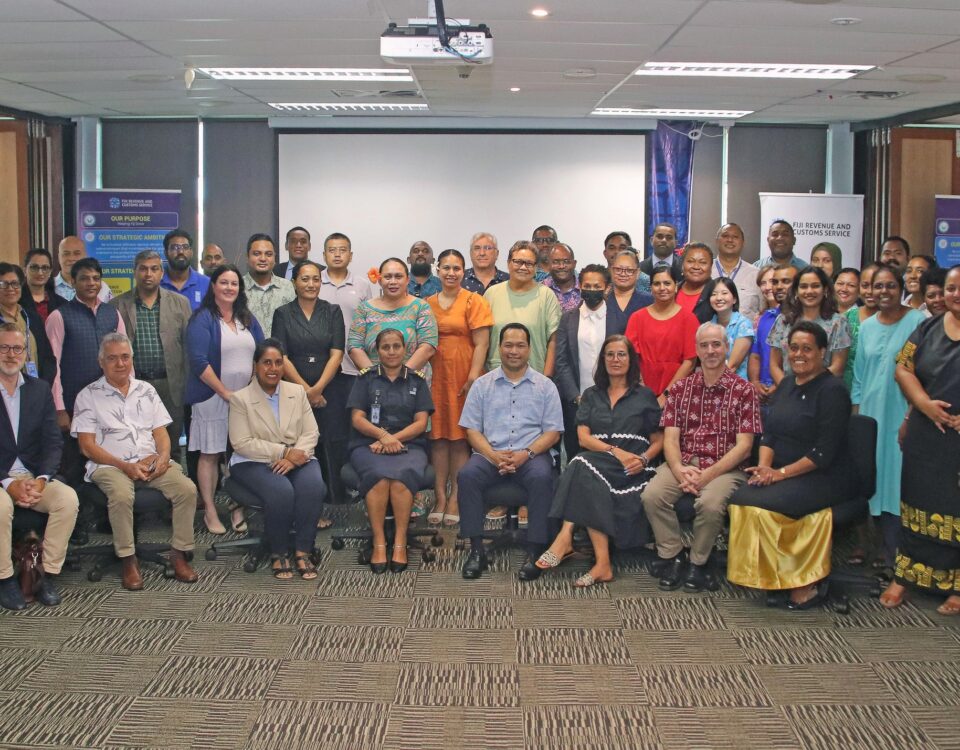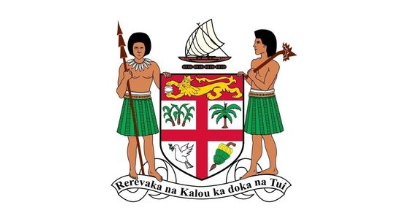
Prime Minister Rabuka’s National Statement At The 78th Unga-(22/09/2023)
22/09/2023
Fiji – Prime Minister Addresses United Nations General Debate, 78th Session
22/09/2023Published On: 22/09/2023
The President of the UN General Assembly, Your Excellency Dennis Francis
Secretary General, Antonio Guterres
My fellow leaders, Excellencies, Ladies and Gentlemen
Ni Sa Bula Vinaka and a Very Good Afternoon to you
Mr. President, Excellencies
The world that I see today is full of pain, mistrust, cynicism and apathy. There are interconnected complex crises created by our own self-centered ambitions.
Growing geopolitical rivalry is contributing to escalating tensions around the world; rather than leveraging multilateral determination to overcome the poly-crises that threaten us. We are now living in an unpredictable world. We must act to survive these “interesting times.”
Our collective effort is necessary to address enormous challenges and reduce the risk associated with the unpredictable environment that we face today, not only as sovereign nations, but as the whole of humanity.
Instead of leveraging global cooperation to manage our shared challenges and associated risk, growing geopolitical rivalry is escalating these tensions.
Our Blue Pacific is at the center of geopolitical tensions.
At the end of World War II, peace finally returned to the Pacific but today, we are facing renewed geopolitical competition with a similar but complex build-up.
Mr. President, Excellencies
For the Pacific, climate change has been identified as a threat to peace and security.
The reality is that no country is exempt from the impact of climate change and no nation can address it alone.
As we mobilize to address the impact and associated challenges, we must at the same time, come together to share our ‘Common Wealth.’ This is the only way we can ensure that no one is left behind.
We in the Pacific directly bear the brunt of climate change on our coastlines, our communities, our livelihoods, our security, and indeed, our very statehood and identity.
In addition, small Island developing states are struggling to respond to global supply shocks, with soaring debt levels impacting progress in the implementation of the sustainable development goals. The inequality gap continues to widen.
Mr. President, Excellencies
This year marks the mid-point review of the Sustainable Development Goals (SDGs). Earlier this week the outcome of the SDG Summit issued a “call to action.” That was a rallying call. The targets of the SDGs are now in peril. This demands bold, ambitious and accelerated actions.
In this regard, Fiji is committed, and will continue to support, the Secretary-General’s ‘Our Common Agenda’ in the acceleration of the implementation of the Sustainable Development Goals.
We commend and fully support the initiative by the Secretary General in convening the Summit of the Future next year.
It is a pivotal opportunity to leverage global cooperation in addressing critical challenges in the leadup to 2030. In our commitment towards achieving the 2030 Agenda, we presented our second Voluntary National Review on the Sustainable Development Goals in July. It is clear from the review, that this is a ‘watershed moment’ We only have 7 years left. This underscores the need to forge stronger and robust partnerships to respond to the ‘Call to Action.’
Mr. President, Excellencies
The COVID-19 pandemic conflated the impacts of recent natural disasters, and worsened the burden on all sectors of the Fijian economy. We experienced a significant economic downturn as tourism, the backbone of our economy, came to a virtual standstill. Our economy is now on the recovery path led by the tourism sector which has rebounded to pre-pandemic levels.
Mr. President, Excellencies
Our challenges are interconnected. They must be addressed by an integrated response, through effective multilateralism. International cooperation and solidarity are essential to protect our collective interests through targeted engagement. Peace and security are fundamental for sustainable development.
Fiji will continue to uphold global peace and security, as we have done for the last four and a half decades. Currently our peacekeepers are participating in six UN missions contributing to the search for peace. We are committed to the Secretary-General’s ‘New Agenda for Peace’ which outlines a vision for multilateral efforts based on international law, for a world in transition.
This new agenda for peace, echoes and is consistent with the Boe Declaration on Regional Security issued by Pacific Forum leaders which declared the Pacific to be a region of peace. This concept of peace is the premise for our future. I believe it is time that we must consider the Pacific as a Zone of Peace.
We have had discussions on the concept at the regional level and I am convinced that this will be the Blue Pacific’s contribution to world order – the zone of peace.
Mr. President, Excellencies,
The Blue Pacific is the world’s largest ocean. It is also an important carbon sink. Therefore, it is important for humanity that it must be protected and sustainably managed. The ‘large ocean states’ of the Pacific are guided by the 2050 Strategy for the Blue Pacific Continent to navigate challenges and leverage collective strengths to create a prosperous and sustainable future for our peoples.
Mr. President, Excellencies,
This year marks the 75th anniversary of the Universal Declaration of Human Rights. We are committed to our obligation to implement human rights covenants and conventions emanating from the Universal Declaration.
I am also pleased to confirm that the Government I lead is committed to implementing the United Nations Declaration on the Rights of Indigenous Peoples (UNDRIP) and ILO Convention 169 on the Rights of Tribal and Indigenous People.
We join the international community to affirm the implementation of indigenous peoples’ rights and aspirations.
Mr. President, Excellencies,
The Climate Ambition Summit earlier this week, called for enhanced commitment for climate action. We must commit not only to reduce emissions but also support vulnerable communities and foster climate resilience. We look forward to COP28, in particular, the finalization of the Loss and Damage Fund modalities.
We remain hopeful that the pledges towards the $100 billion Climate Finance goal, will be met this year. Climate finance is inaccessible, in particular, for small island developing states. Therefore, there is an urgent need for reform of the global financial architecture, if future targets are to be met.
Fiji welcomes the announcement by President Biden earlier this week for his commitment to contribute $11billion a year to international climate finance to help lower-income countries implement their climate goals. I also commend U.S. leadership in the reform of the World Bank which is geared towards helping low and middle-income countries to access finance.
Mr. President, Excellencies,
Whilst the mid-term review of the Sendai Framework for Disaster Risk Reduction (DRR) 2015–2030, recognized some progress in implementation, there is room for improvement in the pace of implementation. In Fiji we continue to strengthen our Disaster Risk Reduction approach through:
building resilient infrastructure;
strengthening early warning systems;
enhancing community preparedness;
improving disaster response capacities; and
promoting ecosystem-based approaches.
Fiji will continue to deploy humanitarian and disaster relief and rehabilitation to its neighboring countries including for bush fires, severe tropical cyclones, earthquakes and tsunami. We are also undertaking climate mobility adaptation strategies. As of today, we have relocated six coastal communities out of the 42 communities that have been identified for urgent resettlement.
Mr. President, Excellencies,
As a party to the UN Convention on the Law of the Sea, Fiji continues to recognize the significance of ocean conservation and sustainable use and management. Earlier this week, I joined other leaders in signing the Treaty on Biodiversity Beyond National Jurisdictions (BBNJ Treaty) with the intention to ratify as soon as practicable. I am pleased to report that Fiji will ratify the World Trade Organisation Agreement on Fisheries Subsidies after endorsement by the Fiji Parliament last week.
To combat plastics pollution, Fiji is actively engaged in negotiations for the new treaty. We urge countries to finalise the treaty by 2024, before it is too late.
Mr. President, Excellencies,
For Small Island Developing States the “triple burden” of non-communicable diseases, mental health, and the climate emergency, are straining the health infrastructure and resources. Health financing, infrastructure, supply chain management for medicines, consumables and medical equipment, and workforce retention and development, are critical for Fiji and other small island developing states.
The World Health Organisation (WHO) SIDs Voluntary Health Fund established this year, will address the technical and capacity building needs of SIDS. We encourage development partners to contribute to the Fund. Fiji also supports an overarching WHO Accord for Pandemic Prevention which is currently being negotiated. Equity must be at the center of our global health response.
Mr. President, Excellencies,
We welcome the progress made thus far on the Multi-dimensional Vulnerability Index (MVI) to support access to credit through concessional financing and debt relief. Achieving the 2030 Agenda will require a new framework for development finance institutions that is responsive to, and relevant in addressing the needs of small island developing states.
Mr. President, Excellencies,
The people of Fiji on whose behalf I address this Assembly, have given me the responsibility to lead our ‘large Ocean State.’ I cannot fail them. We need genuine and durable partnerships that ensure our collective security, facilitate economic prosperity, and safeguard our resources. It is time to tell it as it is. It is time to be bold and blunt. To do what is necessary for our very survival.
We want a future where global solidarity, and the collective wellbeing of humanity is the ultimate objective. In the midst of the multifaceted crises that threaten our very existence, it becomes vital to uncover our resolve and the untapped reserves of courage and resilience within our innermost selves.
We all hold the power to be a catalyst for the change we need.
Together, We Can!
THANK YOU VERY MUCH.





